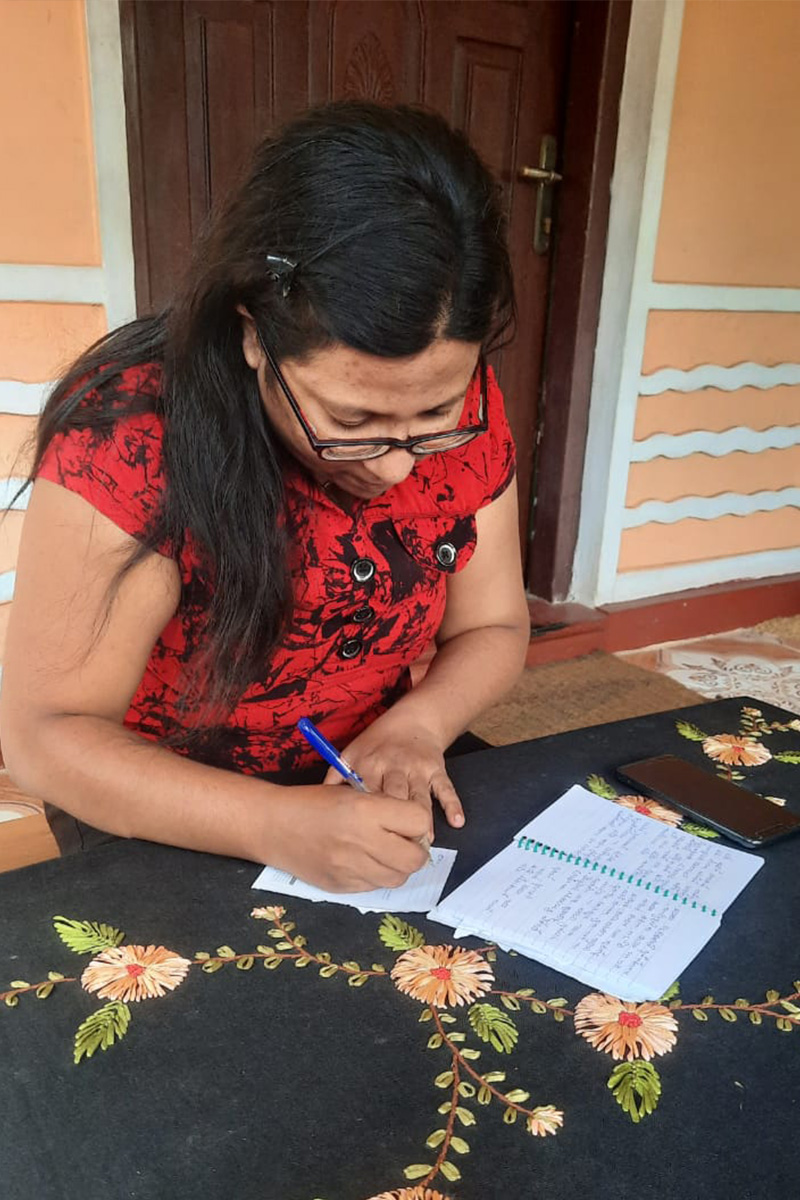
Nisansala Sandamali
32 years, Ibbagamuwa, Kurunegala District
“Before the training somebody sent me pornographic pictures via WhatsApp after getting my number from a common WhatsApp group. I knew how to block that account. But now I am aware that I should also report such individuals to WhatsApp. Similarly, we can report hate speech on social media to the relevant page administrators.
I want to become a reporter after I graduate from my Arts Degree. From Search’s training, I gained a very good overall picture about traditional and social media contexts in Sri Lanka. I learnt that individuals and groups use social media to spread false information or hate speech. Most mainstream media are partial, irresponsible and they sensationalize reports to reach larger audiences. I also see hidden agendas in a lot of social media posts. When I decided to join this training, I had no idea I’d get to improve my knowledge so much.
I was naïve before the training and might have even aided hate speech contents to go viral by reacting to them or commenting on them. But now I am able to read the subtext in any social media post. I don’t react or share posts straightaway. I read them very carefully ,even if they don’t appear to be hate speech or disinformation in a very obvious way.
The aim of hate speech can be used to isolate women, denigrate female politicians and activists’ work, blackmail them and cause harm. Unlike before, now I know how to counter content with hate speech, and handle a situation where one of my social media accounts is hacked, or my photos are shared without my consent.
This kind of training should be given to youth between the ages of 16 to 25. This is the group that can be easily manipulated to spread hate speech and other disinformation. Youth now have easy access to smartphones and laptops. They share content on social media out of ignorance of the consequences. They are not aware of the kind of harm that hate speech can cause a targeted individual or group.
I didn’t have any previous experience or understanding about digital advocacy. We learnt effective approaches to address disinformation, hate speech, human rights violations, women’s issues and so many other problems. I am interested in further developing my knowledge about digital advocacy since it is a good way to raise awareness and mobilize support for hate speech and other issues we want to address. Likewise, I learnt how we can use digital storytelling to counter disinformation, hate speech against individuals and groups. Even in the midst of a violent attack against a minority community such as the 2018 anti-Muslim attack in Digana, we can apply our digital storytelling skills to communicate accurate information relating to the incident.
I want to share my knowledge widely with other women I work with. I will guide them to increase their online safety and assist them to report about hate speech and disinformation targeting them by referring them to relevant assistance institutions depending on the nature of the incident. I am planning to collaborate with the Women’s Resource Center NGO in Kurunegala to conduct awareness raising on hate speech online among other women and youth. I already discussed my training with a Women Development Officer in Ibbagamuwa. I am a Dhamma school teacher and I plan to share my improved knowledge on hate speech on social media with the youth in my Dhamma school.”